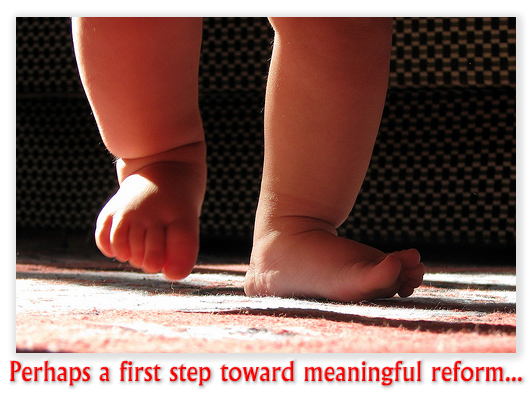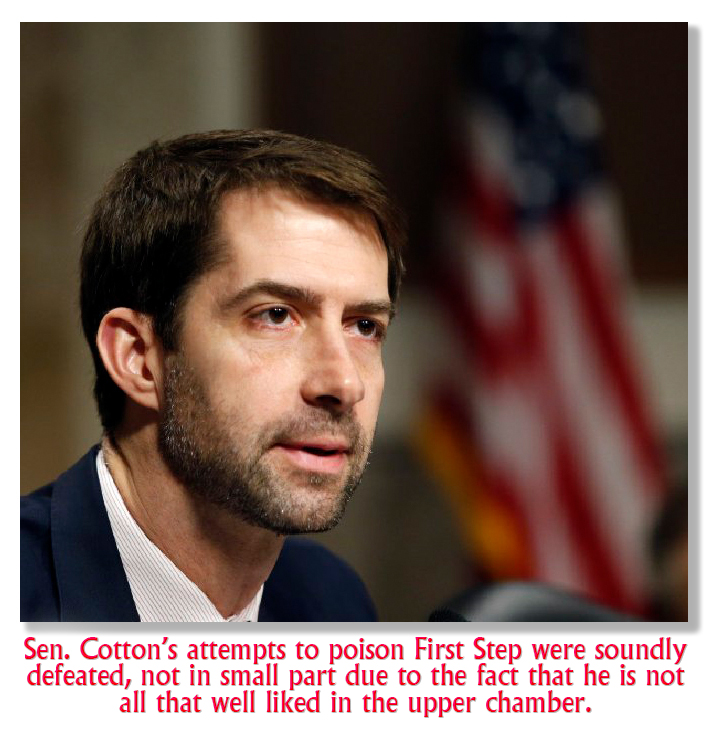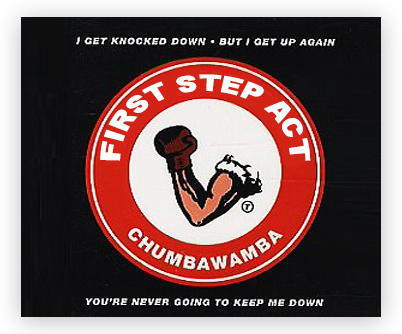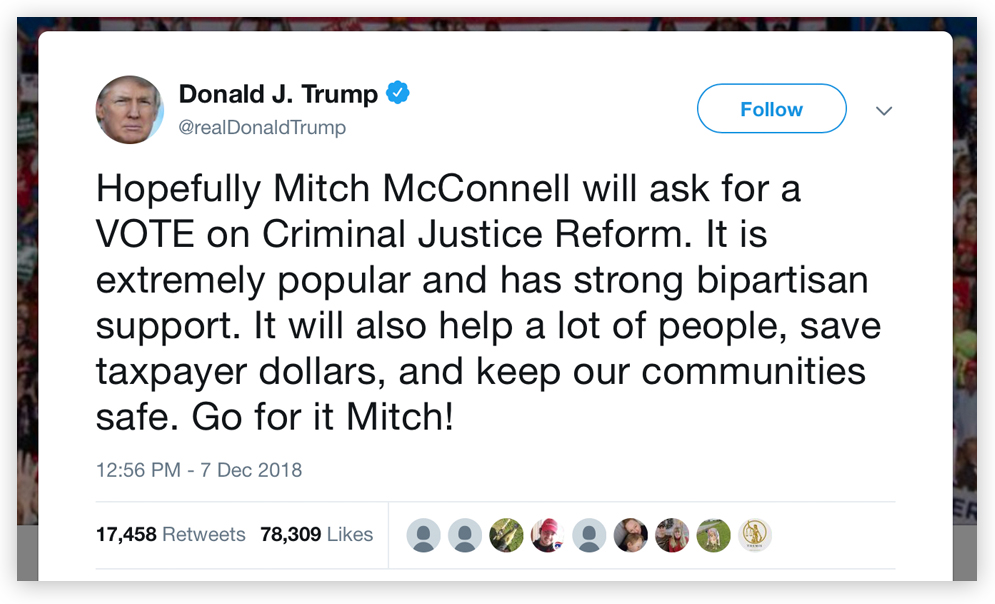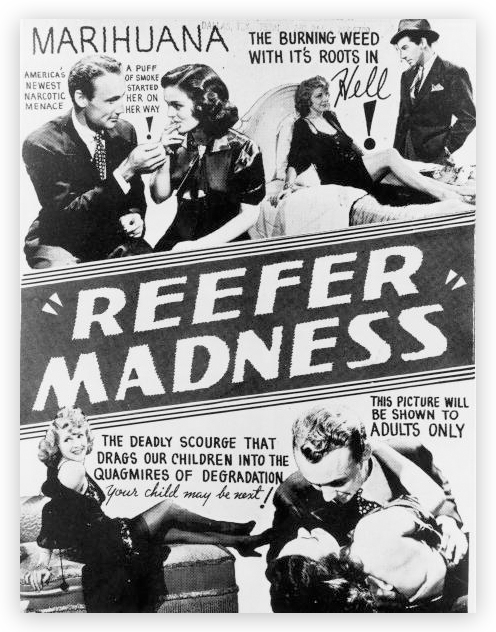We post news and comment on federal criminal justice issues, focused primarily on trial and post-conviction matters, legislative initiatives, and sentencing issues.

SOME EASTER EGGS – NOT ALL GOOD – IN THE FIRST STEP BILL
 In computer software and media, an Easter egg is an intentional inside joke, hidden message or image, or secret feature of a work. It is usually found in a computer program or video game.
In computer software and media, an Easter egg is an intentional inside joke, hidden message or image, or secret feature of a work. It is usually found in a computer program or video game.
The First Step Act text raced through the Senate and House, and was signed by the President, in four days. It was difficult to be sure that the available version of the Act – and there had been at least three even before the Senate passed a fourth on Dec. 18 – was the latest.
The final version has a few tweaks, previously unnoticed revisions and poorly-drafted parts that were finally noticed last week. Some are confusing, a few are interesting, but others are rather ugly.
The good: It has always been gospel for people seeking reductions in sentence under 18 USC 3582(c)(2) because of the changed drug tables that Guidelines career offenders and people with 851 enhancements were blocked from the benefits of the reductions. Guidelines career offenders have their offense levels set on a scale of 12 up to 3, depending on the statutory maximum sentence of the underlying offense. A change in drug quantity Guidelines did not affect the stat maximum, so career offenders’ offense levels did not change.
 The retroactivity of the Fair Sentencing Act – part of First Step – changes the statutory maximum. It used to be that 5 grams of crack got you 5 to 40 years. Now, anything under 28 grams is 0-20 years. More than 50 grams got you 10-life; now 50 grams is 5-40, and 10-life only starts after 280 grams. The effect for a lot of guys, who were convicted of “at least 5 grams” or “at least 50 grams,” is to drop the statutory maximums, and therefore reduce their career offender ranges from 37 to 34 or 34 to 32.
The retroactivity of the Fair Sentencing Act – part of First Step – changes the statutory maximum. It used to be that 5 grams of crack got you 5 to 40 years. Now, anything under 28 grams is 0-20 years. More than 50 grams got you 10-life; now 50 grams is 5-40, and 10-life only starts after 280 grams. The effect for a lot of guys, who were convicted of “at least 5 grams” or “at least 50 grams,” is to drop the statutory maximums, and therefore reduce their career offender ranges from 37 to 34 or 34 to 32.
Because the retroactivity of the Fair Sentencing Act requires that a court “impose a reduced sentence as if… the Fair Sentencing Act of 2010… [was] in effect at the time the covered offense was committed,” it appears that Guidelines career offenders with the right numbers in their indictments may be entitled to lower sentences, as well as the straight USSG 2D1.1 crack guidelines people.
The same stepdown from 21 USC 841(b)(1)(A) to (b)(1)(B), and from (b)(1)(B) to (b)(1)(C) may well let people with 851 enhancements get lower sentences as well.
 That’s a great gift. But not so great is language in First Step Sec. 102(b)(2) that suggests that the extra seven days a year does not have to be applied by BOP until late July 2019, when the Attorney General is required to have a risk assessment program adopted. The interpretation of the subsection is capable of being interpreted to applying only to earned-time credits, but the BOP has a history of interpreting statutory language to the inmates’ detriment (see the 2010 Supreme Court Barber v. Thomas decision).
That’s a great gift. But not so great is language in First Step Sec. 102(b)(2) that suggests that the extra seven days a year does not have to be applied by BOP until late July 2019, when the Attorney General is required to have a risk assessment program adopted. The interpretation of the subsection is capable of being interpreted to applying only to earned-time credits, but the BOP has a history of interpreting statutory language to the inmates’ detriment (see the 2010 Supreme Court Barber v. Thomas decision).
Perhaps even worse is the apparent squishiness of the Elderly Offender Home Detention program. People who think the EOHD is a brand new bauble are mistaken: First Step is not writing on a clean slate.
The definition of “elderly offender,” unchanged (except for dropping the age requirement to 60), has been around since 2008 in The Second Chance Act. Second Chance authorized an EOHD pilot program of two years’ duration, run at a single institution. The terms are set out at 34 USC 60541(g), and should be reviewed by any inmate interested in the program.
The parts of the definition of an “eligible elderly offender” which were not changed by First Step give the BOP a lot of discretion. For example, if the BOP does not “determine that release to home detention… will result in a substantial net reduction of costs to the Federal Government,” the prisoner would be deemed ineligible. 34 USC 60541(g)(5)(A)(vi). This could exclude some people at the younger end of the age range who are especially skilled at a UNICOR job or some other maintenance position valued by the particular institution.
 Likewise, to be eligible, an offender must be “determined by the Bureau of Prisons to be at no substantial risk of engaging in criminal conduct or of endangering any person or the public if released to home detention.” 34 USC 60541(g)(5)(A)(vii). This criterion makes perfect sense in a perfect world: who wants Jack D. Ripper to return to the house next door? But in the real world, this provision grants the BOP virtually unbridled discretion. If it predicts that a drug defendant has a substantial risk of peddling some more pot, or a fraudster will likely run a three-card monte game from his front porch, what judge would ever rule otherwise? What the subsection really says is that the BOP can send who its lower-level staff want to send and deny those who staff want to deny.
Likewise, to be eligible, an offender must be “determined by the Bureau of Prisons to be at no substantial risk of engaging in criminal conduct or of endangering any person or the public if released to home detention.” 34 USC 60541(g)(5)(A)(vii). This criterion makes perfect sense in a perfect world: who wants Jack D. Ripper to return to the house next door? But in the real world, this provision grants the BOP virtually unbridled discretion. If it predicts that a drug defendant has a substantial risk of peddling some more pot, or a fraudster will likely run a three-card monte game from his front porch, what judge would ever rule otherwise? What the subsection really says is that the BOP can send who its lower-level staff want to send and deny those who staff want to deny.
“You’re a danger,” the Elkton case manager told the minimum-security septuagenarian, “based on your robbery conviction” more than a half-century before. And that was that.
The BOP did not release a guiding program statement for the Elkton EOHD experiment, just a one-page release for prisoners. One can only hope for more detail, more consistency, and more common sense from the full-blown EOHD.
Enrolled Bill, First Step Act of 2018 (Dec. 21)
BOP, Elderly Offender Home Detention Pilot Program (Feb. 5, 2009)
– Thomas L. Root













